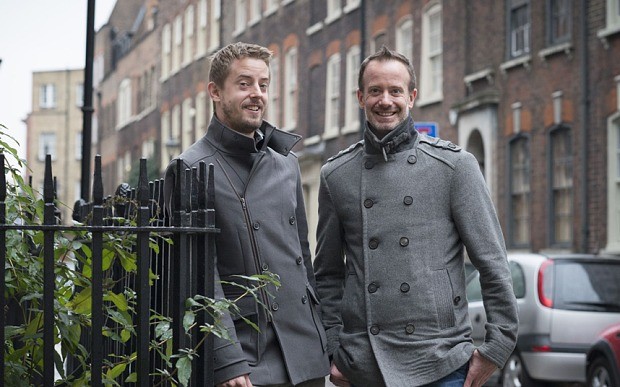The Benefits Of Buying A Home With Cash
Post on: 20 Апрель, 2015 No Comment

Like Hoffman Development Group’s other projects, Charlie Brasington suspects the majority of home buyers for this Tampa, FL condo building will be 100% cash.
This story appears in the Dec. 5 Investment Guide issue of Forbes Magazine. Click here for the full Investment Guide 2012 special report.
When a 62-year-old financial advisor bought a two-bedroom Manhattan co-op recently, he showed up at the closing with a check for the full $970,000 purchase price. No mortgage? “The money I had in cash was sitting getting 0% interest,’’ explains the man, who asked not to be named. “It made absolutely no sense to borrow.”
There were other benefits as well to buying for cash, he says. He figures he got a “liquidity discount” for being able to close quickly—the asking price had been $1.05 million. And he avoided the hassles and paperwork that come with getting a mortgage these days. At the closing, he gloats, “they spent more time making photocopies than anything, so we sat discussing Broadway plays.”
Similar closing scenes are playing out across the country these days—minus the theater chitchat. Rates for 30-year fixed mortgages are hovering at 4%, and 15-year fixed loans can be had for 3.5% or less, the lowest in more than 50 years. Yet the National Association of Realtors estimates that roughly 30% of U.S. home buyers are now making their purchases 100% in cash, compared with 15% in 2008.
Some cash buyers are foreigners, who have never easily qualified for U.S. mortgages. Some are very-high-net-worth folks who have long favored cash for their multimillion-dollar trophy mansion purchases. The increase in cash buying comes mainly from two other groups: real estate investors, who nowadays rarely qualify for mortgages at all, and older buyers (like the New York financial advisor) who could qualify for mortgages but don’t want to.
In foreclosure-plagued Florida, where prices in some areas are down 55% from the peak, investors and snowbirds bearing cash dominate the market. Charlie Brasington is chief executive of Hoffman Development Group. which since 2008 has been using cash from private investors to buy distressed Tampa- and Palm Beach-area condo buildings from banks. Hoffman fixes the properties up and then sells the units to end users. Brasington reports two-thirds of the roughly 300 units Hoffman has sold so far, through Engel & Vlkers, have gone for cash, as have all eight of the $1 million-plus penthouses it has moved.
“These people probably have $5 million or more, so to take 10% of it out and buy a quality home in Florida and know that you’ve got your stake in the sand, that may be a good investment,” Brasington says. “Your cash is not making money in a CD, that’s for sure, and in the stock market there’s volatility. In real estate, sure, you may have some downward trend still, but there’s not that volatility anymore.”
A sales pitch? Sure. But recent cash buyers make similar points, and signs abound that Florida prices may have bottomed. If you’re considering a cash purchase, here are some pointers.
Cash buyers often get a discount

“Until recently I’d say sellers didn’t care that the buyer was coming in all cash or financed, they just wanted the highest number. Now the game has changed,’’ says Tracie Hamersley, a senior vice president at Citi Habitats, a New York City-based realty firm. “While banks are lending again, it is much more onerous, and there are many hoops to jump through. So someone who can close in cash can in most cases qualify for somewhat of a price discount based on that sureness of a sale.”
That cash-is-king phenomenon is being reported by Realtors across the country. “It’s like all of a sudden having this four-star gold status,” says Karen Bergin of Coldwell Banker Advantage in Overland Park, Kans. who has represented three baby boomer cash buyers so far this year. One of her clients, a couple selling their western Kansas farm to relocate to the Kansas City area, even managed to secure an extended closing period while they awaited a buyer for their farm.
Closing costs are lower with cash
Cash buyers can also save on closing costs. You don’t have to fork over money to pay a bank attorney for the mortgage. This is an expense that can run $750 and up (although it can be wise to retain your own lawyer). You don’t have to put real estate taxes in escrow up front nor pay the estimated $300 to $600 for a mortgage application plus additional thousands in loan origination fees and assorted junk charges. And you aren’t required to cough up $400 to $600 for an appraisal, which mortgage lenders insist upon, or, in a growing number of cases, multiple appraisals. (The multiple appraisal requirement is popping up in foreclosure-riddled areas where nondistressed homes have few sales to be compared against.)
Should you get an appraisal anyway? Most Realtors still strongly recommend one, in addition to a home inspection, to ensure you aren’t overpaying or buying hidden structural problems. But if it’s clear you’ve negotiated a good price, an appraisal may not be an imperative.
Another expense that will drop: title insurance, which offers protection against problems with the chain of ownership and preexisting claims like unpaid property taxes or liens placed by stiffed contractors. On a $600,000 house with a 20% down payment, title charges, which include researching local land records, can easily top $2,000. But roughly one-third of that is for coverage that protects only lenders (which, of course, they mandate you get and pay for). Cash-only buyers don’t have lenders, so there’s an immediate savings right there. Indeed, as a cash buyer, it’s up to you whether you want title insurance at all. Realtors say it’s a prudent add-on.














